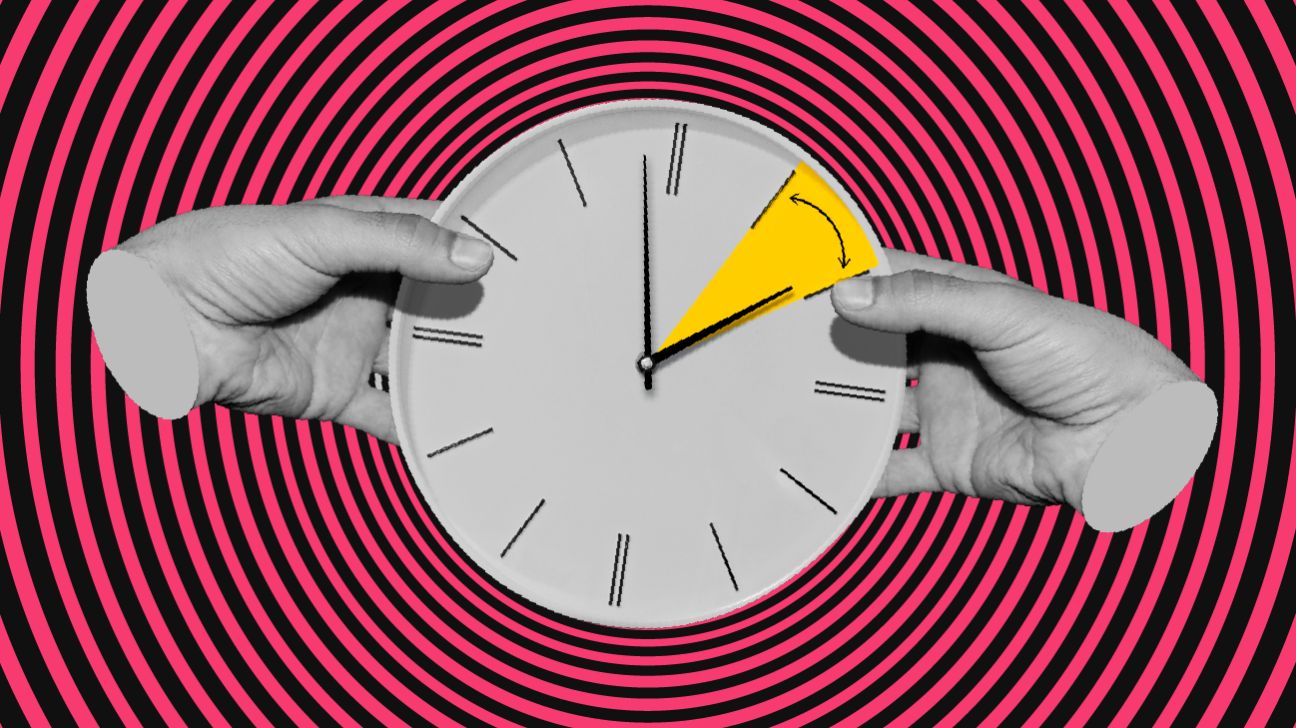The U.S. might make daylight saving time permanent. Rejoice! But scientists warn that it might actually be a bad idea. Womp, womp.

You know the drill, every year we “spring forward” an hour to observe daylight saving time. Then in the fall we “fall back” an hour.
The time changes are both hated and loved for the additional hours of sunlight and the loss of sleep. And many a millennial has waxed poetic about it ending once and for all.
Well, it turns out the government was onto our complaints (Thanks, Twitter!).
On March 15 — just days after DST started — the U.S. Senate passed a bill that would make daylight saving time permanent in 2023. Called the Sunshine Protection Act (which is cute, but also kind of a misnomer), the bill would stop the clock changing so we can enjoy sunny afternoons year-round.
Now we’re just waiting on the House of Representatives to pass the bill and President Joe Biden to give it his signature (you know the whole “I’m just a bill treatment”).
But not so fast. This might be too good to be true and a little misguided. Scientists are basically screaming that this is a terrible idea.
The Senate’s hot take is that permanent DST will allow more time in the afternoon sun, potentially boosting mental health and allowing folks more time outdoors to support the economy 💰. They’re also touting it’ll help curb health concerns linked to DST like the increase in traffic accidents, heart attacks, and strokes.
OK, so these politicians seem like they’re making a pretty good case, but scientists think they’ve got it all wrong. (Wouldn’t be the first time the gov’t didn’t listen to science 😎.)
Scientists — including the American Academy of Sleep Medicine — warn that permanent DST may come with more health consequences linked to sleep and circadian rhythm disruption. Instead, they’re arguing we should still get rid of the 2x a year time change but make standard time a year-long thing.
tl;dr: Scientists are telling the gov’t they picked the wrong time to keep forever.
OK so, the scientists don’t have any executive power here, but they do have a lot of compelling arguments against staying in DST. Here’s the deal.
More early morning darkness
According to the Washington Post, permanent DST means many states won’t see the sunrise until 8:30 a.m. or later for a longer portion of the year.
States on the most western edge of their time zones will get hit with more dark mornings during the already short winter days. This is because the clocks will already be ahead from November through March (when we would usually observe standard time).
This might not sound terrible, but if you already hate dealing with dark dreary mornings of winter, imagine more of them. Morning darkness may also contribute to more traffic accidents during morning commutes.
If you’re curious just how much permanent DST will eff with your morning sunrises, peep this interactive guide.
Sleep probs
So besides a potentially longer “winter is coming vibe” in the a.m., year-round DST will also give us more afternoon sunlight. Eternal summer nights sound great, but research shows more natural light in the evening actually causes folks to lose more sleep.
Many of us aren’t getting those 7 to 8 hours anyway, so it’s not exactly ideal if you still have to go to bed and wake up at a reasonable time. And chronic insomnia and sleep deprivation are linked to a ton of health problems.
Sleep-wake cycle issues
Probably the American Academy of Sleep Medicine‘s biggest beef with DST is how it doesn’t really align with peeps’ circadian rhythm (aka your sleep-wake cycle).
This 24-hour biological clock is influenced by natural light in the morning and darkness in the evening and helps regulate behaviors like waking, hunger, sleeping, body temperature, and alertness. So, if this delicate sleep-wake cycle gets disrupted, all those behaviors might get messed up too.
So, we already knew the time change thing sucked, and it seems like everyone is in agreement that it’s time to nix the 2x a year time change.
But keeping DST year-round might have unintended consequences on our safety, sleep, and circadian rhythms. Instead, scientists are saying we should opt for year-round standard time instead.
For now, we’ll just have to see if the House votes down this bill or if DST is here to stay.

